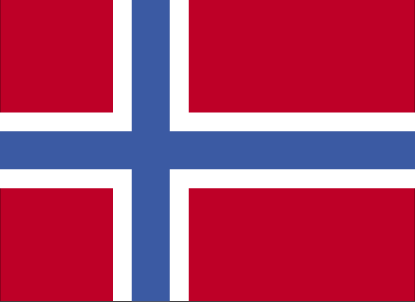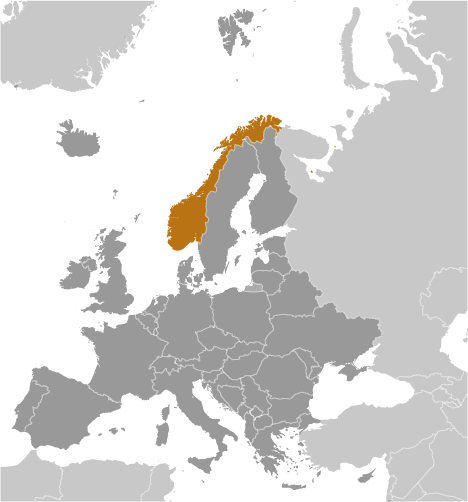Firms looking to expand into Norway will find the Norwegian market generally receptive to most technology products and services.
Software development, systems integration, and consultancy will continue to be high growth sectors for the Norwegian economy
in the next two/three years. In addition, products and services that capitalize on Norway’s wireless infrastructure have
a strong probability of finding a target market. As a nation, Norway has numerous strengths and even some weaknesses in their
ICT industry. Perhaps the most compelling trait of all is Norway’s clear desire to protect Norwegian interests in the global digital
economy (a.k.a. the knowledge economy). In a short amount of time, Norway is changing itself to be a global player in the
ICT industry.
Strengths:
- Norway has one of the highest purchasing power parities in the entire world
- Norway’s small population size gives them the ability to quickly implement national policy changes
- Norway typically ranks near the top in just about all major technology indices
- Norway has a 50.4% (ranked 5th) penetration rate for personal computers in households
- 64% of all Norwegians have cell phones
- Very high internet usage rates among consumer
- In 2000, the government of Norway passed a comprehensive National ICT Policy that will make Norway more ICT friendly
- Individual, culture, and the environment - Protecting Norwegian citizens and cultural interests in the Knowledge Economy
- Norwegian Industries - Norway promotes ICT in all Norwegian industries
- Norway’s ICT Workforce - Foster the further development of a domestic ICT sector and the ICT workforce in all Norwegian industries
- Government leads the way in promoting the use of E-Government initiatives. Numerous E-Government initiatives have been already been established
- Establish a central government portal dissemination of government information
- Distribute government forms (tax returns, getting a driver’s license, etc.)
- Transaction processing, filing personal income taxes
- Education Norway promote ICT literacy at all educational levels and all disciplines
- Norway has deployed a modern telecommunications infrastructure
- Norway is in the process of deploying the next generation broadband infrastructure (greater than 2 Mbit/s) to households and schools by the end of 2004
- Legal framework that generally supports most aspects of ICT
- Norway supports domestic and international efforts to protect intellectual property; therefore software piracy is very low and cyber-squatting is generally not a problem
- Although Norway is not in the EU, they do support the majority of EU legal initiatives surrounding ICT
- Norway has passed the Personal Data Act which protects an individual’s right to privacy of information
- 3rd generation wireless licenses are in the process of being awarded. Since this is generally the case for most nations, I did not specify this as a weakness
- ICT industry is showing stable growth at roughly 8% for the past three years
- Norwegian ICT companies are generally small, which makes them more flexible and adaptable to new technology products
- The software product and consultancy sectors are growing rapidly
- Successfully carved out software niches in the maritime industry, content management, and mobile telephony
- ICT financing is generally available through a number of sources: Government agencies, Venture Capital, Private Loans, Norwegian & EU Seed Funds
Weaknesses:
- Norway’s small population limits its market size, which is roughly 4.5 million people
- Norway has a very high cost of living
- ICT Industry is mostly dominated by telecommunications sector. Information technology turnover is significantly smaller than telecommunication sector; however this is changing
- Norway has a large geographical area with a dispersed population (70% of Norwegian’s live in cities & 30% live in rural areas)
- Although Norwegian consumers are generally comfortable with purchasing over the internet, Norwegian companies have been slow to accept e-commerce transactions
- Norwegian businesses have been slow to use ICT in E-Businesses initiatives as a means for efficiency gains
- Low broadband penetration rates (although this is generally the case worldwide)
- By 2003, Norway will have a projected ICT workforce shortage of roughly 40,000 positions
- Norwegian businesses are tentative in tapping into offshore ICT outsourcing markets such as India, China, and Russia
- The recent privatization of the Norwegian telecommunications industry has have yet to deliver end goals of lowering the cost of broadband services and dramatic increase in competition
- Some ICT legal initiatives remain to be completed
- Digital signature laws are still in the process of being drafted
- Public Key Infrastructure is still being developed
- Norway has yet to fully support the European Economic Area Agreement (EEAA) on E-commerce transaction
|



